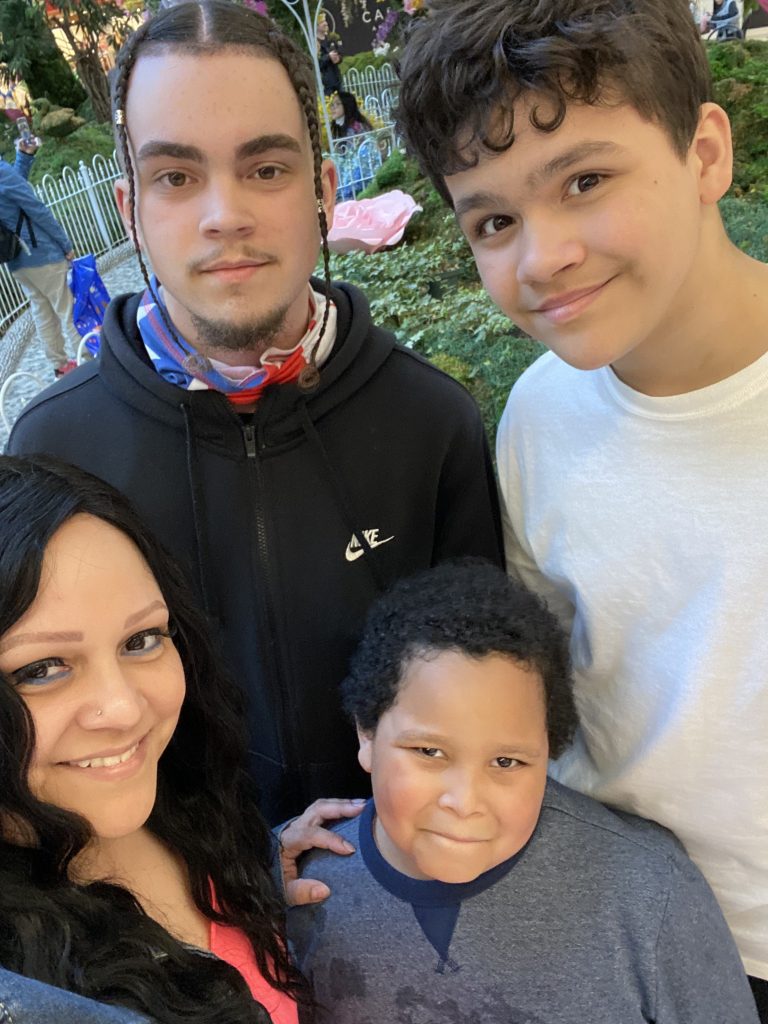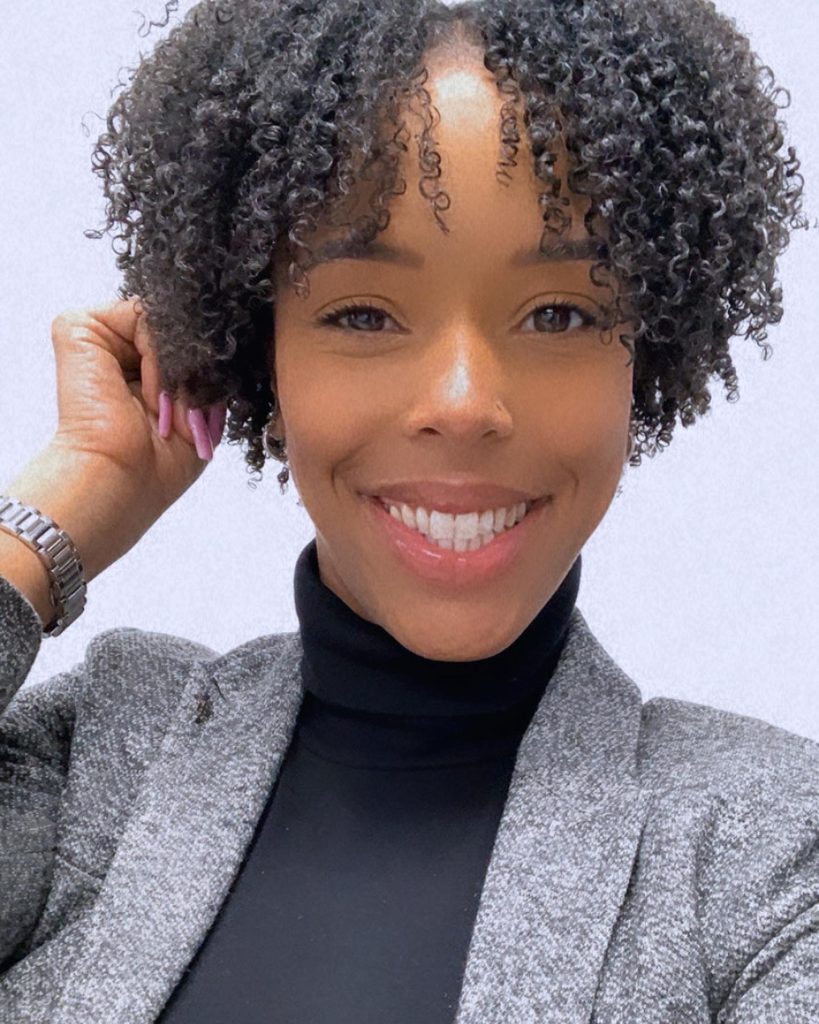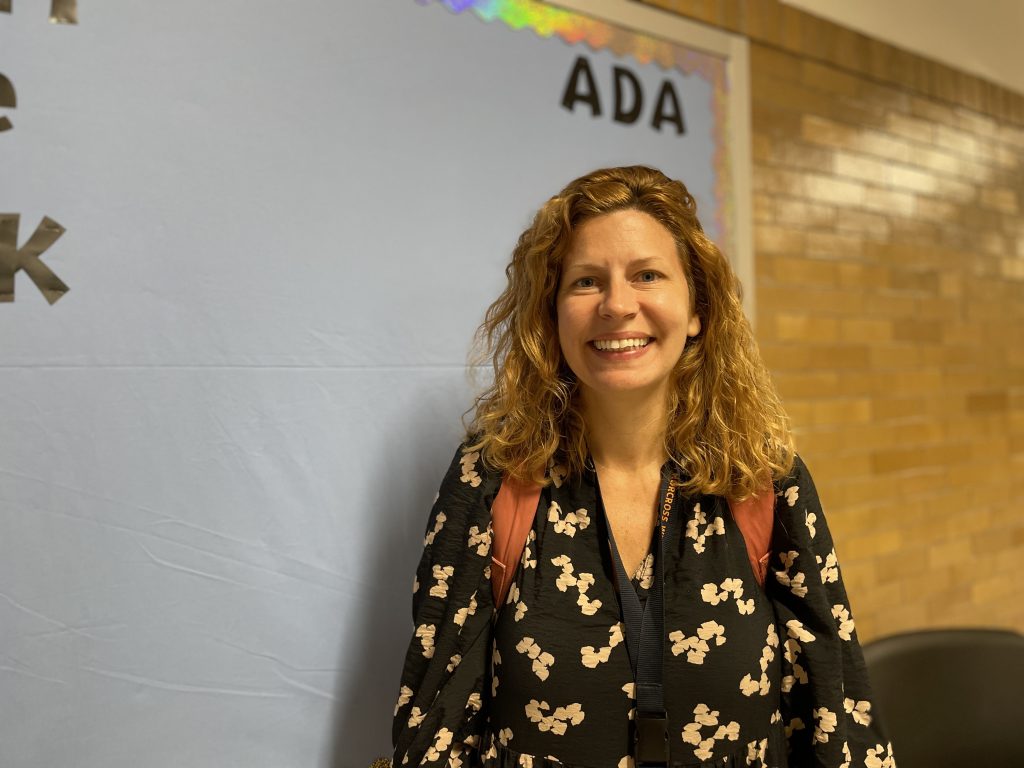Never Miss a Chance to Make a Difference
Subscribe to KIPP New Jersey’s email newsletter and stay in the loop.

Across the United States, 7.2 million students receive support from an Individualized Education Plan (IEP) to address learning difficulties.
At KIPP Cooper Norcross Academy, our special education teammates are committed to supporting every student that enters their classrooms and partnering with families on that journey. By combining their expertise, knowledge, and dedication, our families and staff enable students to reach a high bar— and never feel embarrassed about receiving the support they need to get there.
We spoke to a KIPP parent, a special education teacher, and a Director of Special Education about their experiences navigating IEPs and the advice they’d share about breaking the stigma and supporting students with learning disabilities to become lifelong learners.

Erika Noboa
Parent, KIPP Lanning Square Primary & KIPP High School
Three of my children have received support from an Individualized Education Plan during their time in KIPP schools. I feel grateful to their teachers for involving me in my childrens’ education and taking the time to understand their needs.
I believe that every child is different and may have unique learning needs, even students who don’t have an IEP. My older son benefits from things like math problems broken down step by step. Speech therapy has also helped him make progress and as a result, he’s doing great in school today.
My biggest advice to other families who may be starting the IEP process is to communicate with teachers! Teachers like Ms. Godbolt are excellent at communicating with me. We meet every year with their teachers and we work together to set goals for their progress and talk about our expectations. I then have the chance to share how they’re doing at home and teachers discuss their progress in the classroom and what to expect about the following year.
My goal as a parent is to act as a partner with teachers and support my children’s learning at home. It’s hard when families have to juggle work schedules and their child’s education, but I think it's important to set aside time every day to read books with them or connect about their day. It gives you time to understand them as learners and see if there are things you could be doing to better support them.

Martina Godbolt
Special Education Teacher, KIPP High School
I think it’s common for families and students to feel like there’s a stigma attached to having an IEP. However, there is not! I believe IEPs create opportunities for teachers, students, and families to work together and improve academic results.
Students with IEPs can achieve success. If a student has a disability, it does not mean they have an inability to learn, they just access knowledge differently.
In my classroom, I’ve created an environment with an array of hands-on and cooperative learning opportunities. For instance, last school year during Black History Month, each of my students had the chance to research a famous African American and present on that person’s life, at our “Blacks in Wax” Museum. Other active learning opportunities included a visit to a local restaurant (where students received a budget and planned their meal accordingly!), a Hispanic Heritage Month celebration, career explorations, and various S.T.E.M experiments.
Partnerships with families are important, and it enhances academic growth. Therefore, I prioritize family communication and encourage families to visit my classroom. Most often, a child’s caregiver is their first teacher and knows them best. Together, we can help them meet their goals!

Jaime Downey
KIPP Cooper Norcross Academy, Director of Special Education
In my role, I feel passionate about ensuring that our special education program allows every child to access the same education as their peers in general education. I want parents who are starting the IEP process to understand that we always begin with the least restrictive option when we look at possible accomodations and that there’s no shame associated with having an IEP—it’s all about helping every student receive an excellent education.
If a parent is concerned their child could have a learning disability, we start with the intervention process. This could look like providing an intervention where we work with the child in a smaller group or ensure they receive more targeted, individual instruction.That intervention can sometimes be successful, but if the child needs additional support, we move forward with the process of an IEP evaluation.
When a child receives an IEP, their caregivers immediately become a part of our support team and offer a critical voice in the process. There’s only so many things we can learn from teachers, we need the perspective on progress at home from our families. Our families are supported by our assistant principals of special education, special education teachers, and school psychologists.
I encourage families to come visit our schools and classrooms. The goal in our classrooms isn’t just that students grow academically, it’s that they feel excitement and joy when they come to school every day and become lifelong learners.
KIPP Families: If you believe your child could benefit from special education service, please reach out to your school’s Assistant Principal of Special Education.
Subscribe to KIPP New Jersey’s email newsletter and stay in the loop.